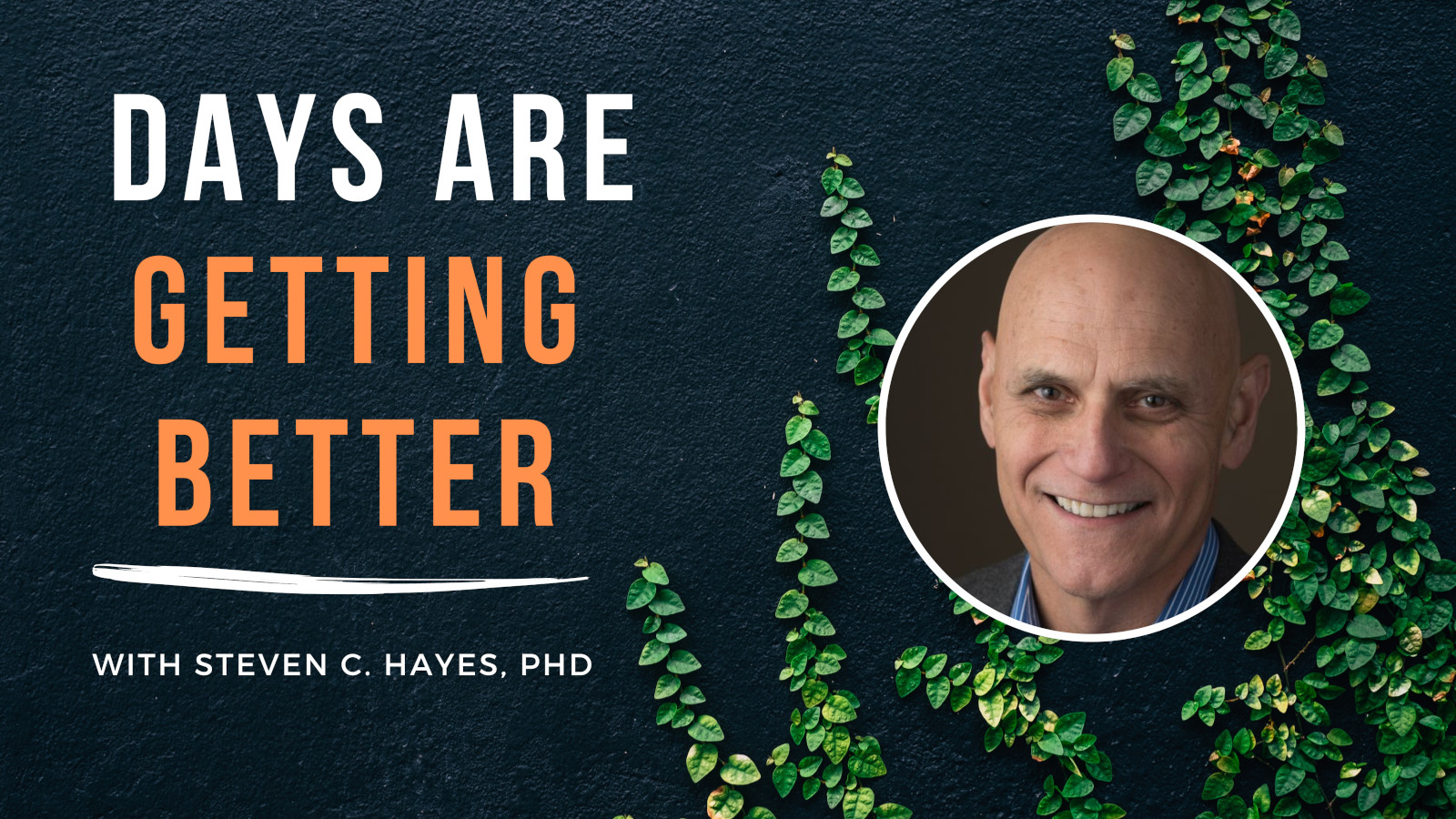The first of January is a significant date. Not only is it the beginning of a new calendar year, it’s also a psychological turning point, where millions of people commit themselves to making a change.
Some people might feel motivated to leave sweets and alcohol behind. Others might be inspired to get off the couch, join a gym, and exercise more often. And then again, others might simply want to quit a bad smoking habit once and for all.
Resolutions belong to the New Year’s tradition like fireworks and overpriced bottles of champagne. But while the intention to make a change sounds good and noble in theory, the practice often looks a lot different.
According to a study from the Statistic Brain Research Institute, only 9.2 percent of over a thousand people who had made a resolution in 2017 achieved success. This means nine out of ten people failed to follow through on their resolutions.
The specific numbers might vary from study to study. However, the point remains the same: Most people quit their resolutions early on, and only a few manage to stick to their commitments long enough to achieve success.
How can this be? Why do most people fail their resolutions? Is there some kind of glitch in our psychology that prevents us from making a lasting change? Or are most people simply not “cut out” for the challenge?
The truth is, bad habits are sticky. Anyone who has ever tried to make a change knows exactly how hard it can be. Temptation and self-sabotage lurk around every corner, and before we know it, we are down a slippery slope back into the arms of our old bad habits.
If we wish to break our old pattern for good, and make resolutions that stick, we need to take a closer look at the reasons why we often fail to keep our word.
Two Counterintuitive Reasons Why Most Resolutions Fail
Reason #1 Too Much Action
When we think about making a change, we tend to think about perfect outcomes. We think about the flat stomach, the full bank account, and the perfect sex life.
Inspired by this grand vision, we go all out on the first opportunity. We hit the gym in an hour-long crunch marathon, and we promise to ourselves “that’s it”, and vow to completely quit whatever bad habit we’ve been trying to get rid off for so long.
Although this may sound like the right course of action, we have just committed the first mistake. Because while going “all out” may work in most movies, it’s hardly a recipe for sustainable change.
Too often people think of changing as a black-or-white situation, where either you succeed or you don’t. However, life is a lot more complex than that. We don’t simply leap from black to white, but need to account for a slow transition – with lots of shades of grey along the way.
Things won’t be perfect right from the start, and they don’t have to be. Mistakes will happen, but so will progress. Allow yourself to start small, and then build from there.
The first reason why most resolutions fail is because people take too much action too soon.
Reason #2 Too Much Pressure
Whenever we resolve to make a change, we can do so out of two distinct psychological places: choice or coercion. Hardly anyone would admit to making a New Year’s resolution out of coercion, yet this is exactly what lots of people do.
We make resolutions out of social pressure, and because other people expect it from us and will be disappointed if we don’t follow suit. And so we oblige, even though research has shown that goals based on social compliance tends to give rise to weak and ineffective motivation.
We also make resolutions because of internal pressures, and because we associate a lot of fear, guilt, and shame with who we are right now. We then tell ourselves that we simply “HAVE” to change, and beat ourselves into changing.
In one sense these are valid reasons for wishing to make a change, but they are also, again, not sustainable. A change born out of force grows resentment, and in order to continue the change, we have to suppress a very real part of ourselves that longs for freedom and autonomy.
Instead, it’s much more helpful to commit to a change out of choice. It’s between you and the person in the mirror whether or not to make a change. Only you can pick the purpose.
This doesn’t mean that self-doubts and negative feelings will stay away from interrupting your progress. However, it does mean that they no longer get an unwarranted say in your actions. Your mind can weigh the pros and cons of decisions and that’s all grist for the mill — but bottom line, you choose. Whose life is it after all?!
Thus, the second reason why most resolutions fail is because people commit to change out of forced coercion, and not out of free choice.
The Principle of “Just Cuz”
So far we have established two big reasons why most resolutions fail: First, because people take too much action too soon, and second, because people act out of pressure and not out of chosen purpose and meaning.
If we wish to circumvent these two pitfalls, we need a viable strategy to get to small steps linked to real choice — even when our mind is listening and wants big outcomes because we HAVE to. And that’s where the principle of “Just Cuz” comes into place. The principle of “Just Cuz” states that we make commitments simply just cause. Think of it as training program for your bossy mind … teaching it a new way to be.
In this training program, there’s no grand reason or greater meaning behind the change. Just a practice to keep your word even when it doesn’t really matter.
This may mean to give up your favorite TV show for a week. It may mean to take a cold shower in the morning. Or it may mean that from now on, you open each doors with your non-dominant hand instead of your dominant one.
A small, simple, slightly difficult change. Just cuz.
Why “Just Cuz” Just Works
By committing yourself to a small change like this, you can playfully avoid the trap of having to go “all in, in order to see big results”. There’s no pot of gold at the horizon, and there are no “big results” to see. The changed action is all there is.
Likewise, a small change out of “free” choice is likely stay clear of the usual defense mechanisms that awaken whenever we try to force or argue ourselves into changing. Again, there’s seemingly no greater meaning behind the change. Just a small simple commitment.
But even more than just avoiding the common pitfalls, the principle of “Just Cuz” strengthens your commitment skills. By committing yourself to a slightly difficult change, you will regain more and more control over your life.
I have seen lots of clients who, by adopting a small change linked to chosen values in one area of their lives, empowered themselves to make a meaningful, sustainable change in another area. Commitment is contagious and it quickly catches on.
Years ago when I was walking out of a panic disorder, I did longer and longer exercises of this kind: First hours, then days, then months. One of the final commitments was to go a year without dessert – not because it was important, but precisely because it wasn’t.
In this year without dessert, I only slipped once, where I put a spoonful of ice cream in my mouth before remembering and spitting it out. With that exception, I 100% met my goal.
Why was this a good idea? Because I began to trust myself again that I could do what I said I would so. Just cuz. And that meant I could afford the seeming risk of choosing my values and taking a long journey in their direction one step at a time. In itself this was a huge benefit that made all the difference.
Take Home Message
Most people fail to follow through with their resolutions, because they are aiming too high and take too much action too soon, or because they are committing out of pressure and coercion, and not out of free choice.
A good antidote to stay clear of both traps (and practice your commitment skills) is the principle of “Just Cuz”, where you commit yourself to a slightly difficult change, just because. Practicing commitment when it seemingly “doesn’t matter” will help you rein in the mind when your deep yearnings and values are more obvious and central.
Beware that your mind can turn even the principle of “Just cuz” into a stick to beat yourself with. A commitment that is small is easily met by 1000s of thoughts like why ”it doesn’t really matter” or why “you shouldn’t have to do it”. In those moments it’s your choice whether to listen to these voices, or to acknowledge them as what they are: mere thoughts.
It will be easier to follow through on your commitments one some days than on others. And on some occasions, you might even break your commitment. You can then decide to beat yourself up about it, or dust yourself off and realize that nothing about the importance of your commitment has changed. And you can get right back to it.
Commitment involves the acknowledgment that change starts here, or not at all. Concrete humble steps are best. Small is good. Over and over is good. Being responsible for building larger patterns is good, because it will lead to remarkable progress.
You can learn to stick to your resolutions, not because you HAVE to, but because you choose to. You have the authority to be the kind of person you are, and to own your like journey. Meaning and purpose is ultimately between you and the person in the mirror. Just cuz.







